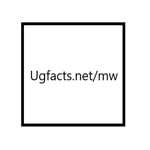Certificate Courses Offered At Mwimba College of Agriculture 2024-2025
Mwimba College of Agriculture Certificate Courses; See the list of certificate courses offered at Mwimba College of Agriculture. Let us have a brief overview of the background of ARET
A core function of ARET is the development of technologies for use by tobacco farmers for the maximization of profit in their farming business. In this perspective, the goal is to develop technologies that would improve tobacco production in the country and to provide technical services and develop information systems that will help farmers solve their problems. Our research is demand driven and focuses on priority needs. Research is conducted at three research stations: Kandiya Research Station in Lilongwe, Mwimba Research Station in Kasungu and Kabwafu Experimental Station in Mzimba.
To achieve the core function of technology generation, ARET has a Department of Research and Technical Services which has 4 sections, manned by very qualified and competent staff in their specialized fields:
- Plant Breeding Section: this section breeds varieties of all types of tobacco, focusing on breeding or selection for yield as well as resistance to common diseases such as Black Shank, Fusarium Wilt, Wild Fire, Alternaria, Bushy Top and Root Knot Nematodes.
- Agronomy Section: conducts research on agronomic practices that influence yield and leaf quality including types and quantities of fertilizers, plant populations, weed control, sucker control, and topping among others.
- Plant Protection Section: conducts research on major pests and diseases including their economic thresholds and effective control. Most of the work involves screening of chemicals for disease and pest control with the aim of developing integrated pest management systems.
- Soils Section: conducts research on soil physical and chemical aspects, fertilizer testing and use of lime in the field to stabilize soil acidity.
- Engineering Section: work in this section aims at reducing yield and quality losses during harvesting and curing. The focus is on designing, developing and testing tobacco curing structures or modifying existing curing structures so that they use various types of fuel economically.
Research Stations
ARET has three functional research stations located in localities suitable for tobacco production. These are Kandiya Research Station, Mwimba Research Station and Kabwafu Experimental Station.
Kandiya Research Station
Kandiya Research Station is located on the outskirts of the City of Lilongwe. It is along the Lilongwe-Mchinji road, about two kilometers from the Mchinji roundabout. The station has a total of 95 hectares of land of which 90 hectares is arable land. It has extensive laboratory and glasshouse infrastructure in addition to a workshop and farm area. Much of the research work in burley tobacco and some work on Western tobacco is conducted at this station. This also where the ARET Headquarters is.
Mwimba Research Station
Mwimba Research Station, 35 km south west of Kasungu, is ARET’s major site for research on Flue Cured tobacco. It is located in the middle of Malawi’s tobacco heartland. The station has 1,400 ha of land. It has an extensive infrastructure comprising of offices, staff quarters, a school, water works and a large number of curing barns for flue and western tobaccos. The station activities have over the past few years been extended to include all other types of tobacco as well as production of certified seed.
Kabwafu Experimental Station
The experimental station, opened in 1999, is situated in Mzimba district in the northern region, 90 km from Mzuzu. It was set-up on demand from farmers in the northern region who wanted to access technologies easily. The setting up of this station enables ARET to develop site-specific technologies for the farmers in that ecological zone. The station is being used as a site for a number of burley tobacco experimental trials. The station covers 100 hectares of land.
